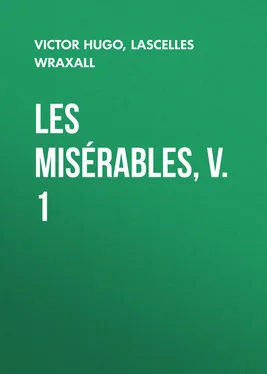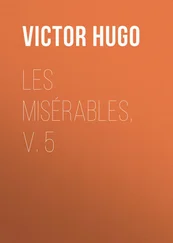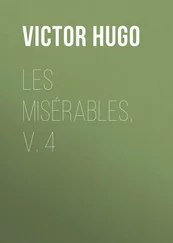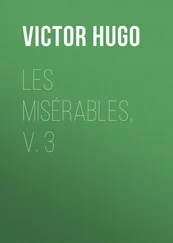Lascelles Wraxall - Les Misérables, v. 1
Здесь есть возможность читать онлайн «Lascelles Wraxall - Les Misérables, v. 1» — ознакомительный отрывок электронной книги совершенно бесплатно, а после прочтения отрывка купить полную версию. В некоторых случаях можно слушать аудио, скачать через торрент в формате fb2 и присутствует краткое содержание. Жанр: literature_19, foreign_antique, foreign_prose, на английском языке. Описание произведения, (предисловие) а так же отзывы посетителей доступны на портале библиотеки ЛибКат.
- Название:Les Misérables, v. 1
- Автор:
- Жанр:
- Год:неизвестен
- ISBN:нет данных
- Рейтинг книги:4 / 5. Голосов: 1
-
Избранное:Добавить в избранное
- Отзывы:
-
Ваша оценка:
- 80
- 1
- 2
- 3
- 4
- 5
Les Misérables, v. 1: краткое содержание, описание и аннотация
Предлагаем к чтению аннотацию, описание, краткое содержание или предисловие (зависит от того, что написал сам автор книги «Les Misérables, v. 1»). Если вы не нашли необходимую информацию о книге — напишите в комментариях, мы постараемся отыскать её.
Les Misérables, v. 1 — читать онлайн ознакомительный отрывок
Ниже представлен текст книги, разбитый по страницам. Система сохранения места последней прочитанной страницы, позволяет с удобством читать онлайн бесплатно книгу «Les Misérables, v. 1», без необходимости каждый раз заново искать на чём Вы остановились. Поставьте закладку, и сможете в любой момент перейти на страницу, на которой закончили чтение.
Интервал:
Закладка:
No one knew him; he was evidently passing through the town. Where did he come from? The South perhaps, the sea-board, for he made his entrance into D – by the same road Napoleon had driven along seven months previously when going from Cannes to Paris. The man must have been walking all day, for he seemed very tired. Some women in the old suburb at the lower part of the town had seen him halt under the trees on the Gassendi Boulevard, and drink from the fountain at the end of the walk. He must have been very thirsty, for the children that followed him saw him stop and drink again at the fountain on the Market-place. On reaching the corner of the Rue Poichevert, he turned to the left and proceeded to the Mayor's office. He went in and came out again a quarter of an hour after. A gendarme was sitting on the stone bench near the door, on which General Drouot had mounted on March 4th, to read to the startled town-folk of D – the proclamation of the gulf of Juan. The man doffed his cap and bowed humbly to the gendarme; the latter, without returning his salute, looked at him attentively, and then entered the office.
There was at that time at D – a capital inn, with the sign of the Cross of Colbas. This inn was kept by a certain Jacquin Labarre, a man highly respected in the town for his relationship to another Labarre, who kept the Three Dolphins at Grenoble, and had served in the Guides. When the Emperor landed, many rumors were current in the country about the Three Dolphins; it was said that General Bertrand, in the disguise of a wagoner, had stopped there several times in the month of January, and distributed crosses of honor to the soldiers, and handsful of napoleons to the towns-people. The fact was that the Emperor on entering Grenoble refused to take up his quarters at the Prefecture; he thanked the Mayor, and said, "I am going to a worthy man whom I know," and he went to the Three Dolphins. The glory of the Grenoble Labarre was reflected for a distance of five-and-twenty leagues on the Labarre of the Cross of Colbas. The towns-people said of him, "He is cousin to the one at Grenoble."
The man proceeded to this inn, which was the best in the town, and entered the kitchen, the door of which opened on the street. All the ovens were heated, and a large fire blazed cheerily in the chimney. The host, who was at the same time head-cook, went from the hearth to the stew-pans, very busy in attending to a dinner intended for the carriers, who could be heard singing and talking noisily in an adjoining room. Any one who has travelled knows that no people feed so well as carriers. A fat marmot, flanked by white-legged partridges and grouse, was turning on a long spit before the fire; while two large carp from Lake Lauzet and an Alloz trout were baking in the ovens. The landlord, on hearing the door open and a stranger enter, said, without raising his eyes from his stew-pans, —
"What do you want, sir?"
"Supper and a bed," the man replied.
"Nothing easier," said mine host. At this moment he looked up, took in the stranger's appearance at a glance, and added, "On paying."
The man drew a heavy leathern purse from the pocket of his blouse, and replied, —
"I have money."
"In that case I am at your service," said the host.
The man returned the purse to his pocket, took off his knapsack, placed it on the ground near the door, kept his stick in his hand, and sat down on a low stool near the fire. D – is in the mountains, and the evenings there are cold in October. While going backwards and forwards the landlord still inspected his guest.
"Will supper be ready soon?" the man asked.
"Directly."
While the new-comer had his back turned to warm himself, the worthy landlord took a pencil from his pocket, and then tore off the corner of an old newspaper which lay on a small table near the window. On the white margin he wrote a line or two, folded up the paper, and handed it to a lad who seemed to serve both as turnspit and page. The landlord whispered a word in the boy's ear, and he ran off in the direction of the Mayor's house. The traveller had seen nothing of all this, and he asked again whether supper would be ready soon. The boy came back with the paper in his hand, and the landlord eagerly unfolded it, like a man who is expecting an answer. He read it carefully, then shook his head, and remained thoughtful for a moment. At last he walked up to the traveller, who seemed plunged in anything but a pleasant reverie.
"I cannot make room for you, sir," he said.
The man half turned on his stool.
"What do you mean? Are you afraid I shall bilk you? Do you want me to pay you in advance? I have money, I tell you."
"It is not that"
"What is it, then?"
"You have money."
"Yes," said the man.
"But I have not a spare bed-room."
The man continued quietly: "Put me in the stables."
"I cannot."
"Why?"
"The horses take up all the room."
"Well," the man continued, "a corner in the loft and a truss of straw: we will see to that after supper."
"I cannot give you any supper."
This declaration, made in a measured but firm tone, seemed to the stranger serious. He rose.
"Nonsense, I am dying of hunger. I have been on my legs since sunrise, and have walked twelve leagues. I can pay, and demand food."
"I have none," said the landlord.
The man burst into a laugh, and turned to the chimney and the oven.
"Nothing! Why, what is all this?"
"All this is ordered."
"By whom?"
"By the carriers."
"How many are there of them?"
"Twelve."
"There is enough food here for twenty."
The man sat down again, and said without raising his voice, —
"I am at an inn, I am hungry, and so shall remain."
The landlord then stooped down, and whispered with an accent which made him start, "Be off with you!"
The stranger at this moment was thrusting some logs into the fire with the ferule of his stick, but he turned quickly, and as he was opening his mouth to reply, the landlord continued in the same low voice: "Come, enough of this. Do you wish me to tell you your name? It is Jean Valjean. Now, do you wish me to tell you who you are? On seeing you come in I suspected something, so I sent to the police office, and this is the answer I received. Can you read?"
While saying this, he handed the stranger the paper which had travelled from the inn to the office and back again. The man took a glance at it, and mine host continued after a moment's silence, —
"I am accustomed to be polite with everybody. Be off."
The man stooped, picked up his knapsack, and went off. He walked along the high street hap-hazard, keeping close to the houses like a sad and humiliated man. He did not look back once; had he done so he would have seen the landlord of the Cross of Colbas in his doorway surrounded by all his guests and the passers-by, talking eagerly and pointing to him: and judging from the looks of suspicion and terror, he might have guessed that ere long his arrival would be the event of the whole town. He saw nothing of all this, for men who are oppressed do not look back, as they know only too well that an evil destiny is following them.
He walked on thus for a long time, turning down streets he did not know, and forgetting his fatigue, as happens in sorrow. All at once he was sharply assailed by hunger: night was approaching, and he looked round to see whether he could not discover a shelter. The best inn was closed against him, and he sought some very humble pot-house, some wretched den. At this moment a lamp was lit at the end of the street, and a fir-branch hanging from an iron bar stood out on the white twilight sky. He went towards it: it was really a pot-house. The stranger stopped for a moment and looked through the window into the low tap-room, which was lighted up by a small lamp on the table and a large fire on the hearth. Some men were drinking, and the landlord was warming himself; over the flames bubbled a caldron hanging from an iron hook. This pot-house, which is also a sort of inn, has two entrances, one on the street, the other opening on a small yard full of manure. The traveller did not dare enter by the street door: he slipped into the yard, stopped once again, and then timidly raised the latch and opened the door.
Читать дальшеИнтервал:
Закладка:
Похожие книги на «Les Misérables, v. 1»
Представляем Вашему вниманию похожие книги на «Les Misérables, v. 1» списком для выбора. Мы отобрали схожую по названию и смыслу литературу в надежде предоставить читателям больше вариантов отыскать новые, интересные, ещё непрочитанные произведения.
Обсуждение, отзывы о книге «Les Misérables, v. 1» и просто собственные мнения читателей. Оставьте ваши комментарии, напишите, что Вы думаете о произведении, его смысле или главных героях. Укажите что конкретно понравилось, а что нет, и почему Вы так считаете.












